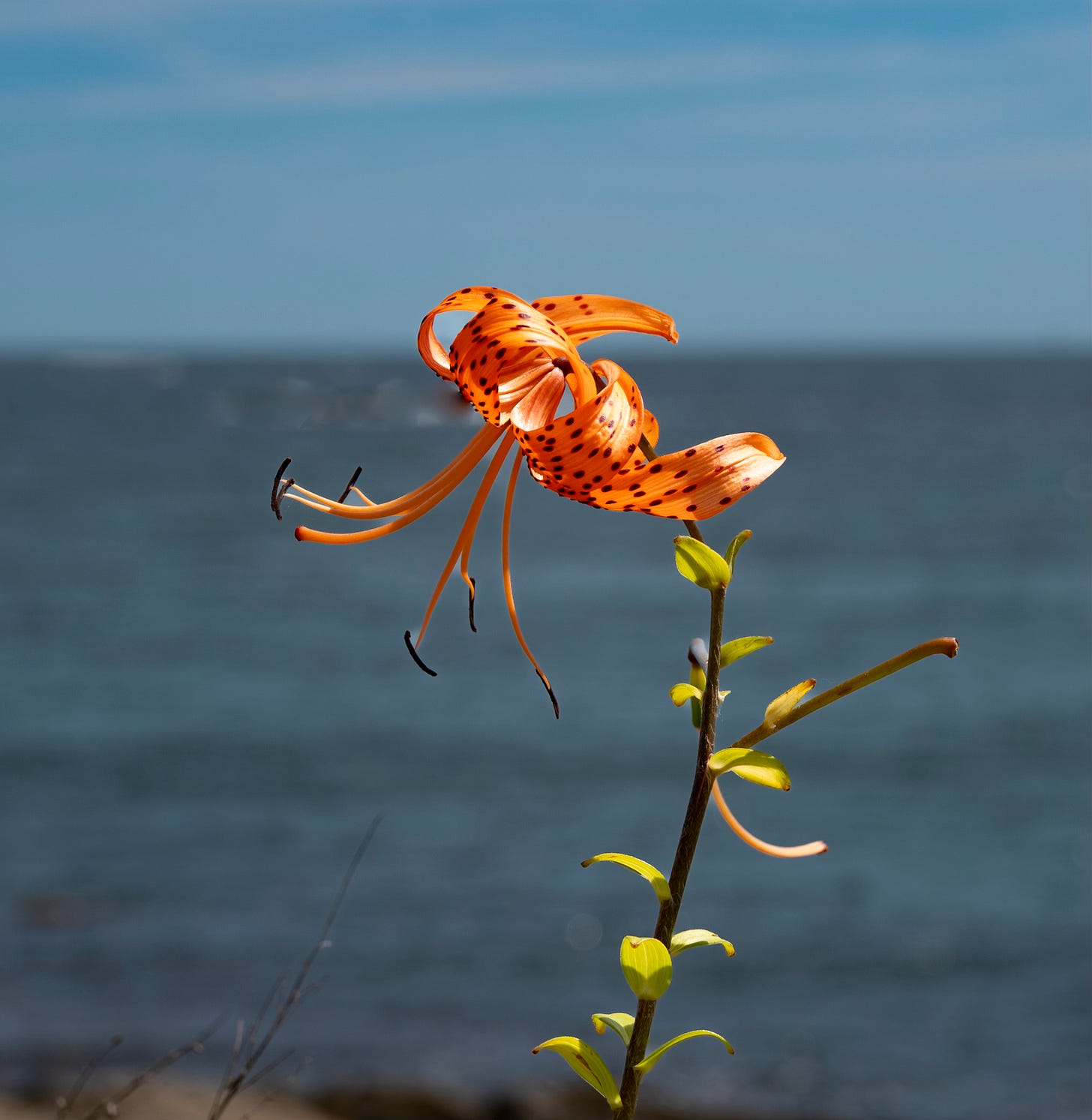Exploring a Third Way
“I had to photograph this jubilant orphan, who beat the odds and flourished after her seed washed up on a lonely rocky shore in Kittery Maine”
Reflecting on my tiger lily’s triumph over adversity has inspired me to examine the impact of random and unexpected events on our lives. For the tiger lily, whose species originated in China, it involved only a blind will to survive. However, for us humans, unexpected random events are usually not life or death. Yet, how we handle them has far-reaching consequences, altering the trajectory of our lives.
We can either view random and unforeseen events as an unwarranted disruption or a serendipitous creative force. When I was creating structural landscapes as a wall builder, I often started out with strong convictions about how to proceed, but then had to yield to realities on the ground. As Gregory Bateson, the visionary ecologist, cautioned us, “a map is not the territory.” In a similar manner, the map you plot in your head to follow in life will not include the steep mountains and unexpected abysses you will undoubtedly encounter.
In the same manner, I never know where I will end up when I start writing. One word prompts the next, one thought leads to another, and pretty soon, I have left the world I intended to write about far behind.
Until recently, it was generally believed that there were only two strategies for handling the random and unforeseen in life: A person could either pursue “a happy life,” pursuing security, stability, and having money with free time to spend it. The alternative was to strive for “a meaningful life” based on high moral standards, strong principles, and a burning desire to make a difference in the world.1
In my younger years, I held both of these paths in such high regard that I couldn’t choose. I blamed myself for being too weak-kneed to make a firm decision and then have the gumption to follow through. I believe this is a common dilemma for many people.
Recently, I found an alternative that could set us free.
Rather than having to choose between a happy life or a meaningful one, psychologists Shigehiro Oishi and Erin Westgate have come up with a third option: “We propose that ‘psychological richness’ is another, neglected aspect of what people consider a good life. Unlike happy or meaningful lives, psychologically rich lives are best characterized by a variety of interesting and perspective-changing experiences.”2
Sometimes we become so fixated on happiness that we try to capture it by living a life chasing only positive feelings and comfort. But if we hope to achieve psychological richness, we must embrace all aspects of our lives, even the unpleasant. Oishi and Westgate write. “Discomfort is a sign that you’re growing,”3
According to Psychology Today, “Psychological richness entails accepting life as it happens, in its entirety. “If we consider stories that we accumulate and share with others as the currency of psychological richness, many of our experiences can lend new insights and propel us towards growth, thus adding up to wealth.4”
Consider my column about the orphan tiger lily an example of this new currency of psychological richness..
xxx
Footnotes:
1 https://medium.com/illumination/the-psychologically-rich-life-3f3bfa30343
2 Oishi, S., & Westgate, E. C. (2022). A psychologically rich life: Beyond happiness and meaning. Psychological Review, 129(4), 790–811. https://doi.org/10.1037/rev0000317
3 Ibid.



